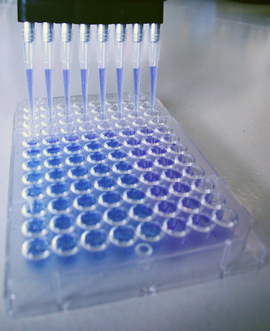 The immunological expertise of the research scientists at the five partner institutions - the universities of Basel, Strasbourg, Freiburg, including the University Medical Center Freiburg, and the Karlsruhe Institute of Technology - defines the scientific orientation of the EURIdoc research program.
The immunological expertise of the research scientists at the five partner institutions - the universities of Basel, Strasbourg, Freiburg, including the University Medical Center Freiburg, and the Karlsruhe Institute of Technology - defines the scientific orientation of the EURIdoc research program.
In Freiburg, the basic research in immunology undertaken at the Centre for Chronic Immunodeficiency (CCI) of the University Medical Center Freiburg goes hand-in-hand with the treatment of patients with congenital immunodeficiencies. In Freiburg, there are also two centres of excellence at the University of Freiburg participating in EURIdoc; the Centre of Integrated Biological Signaling (CIBSS) and Biological Signaling Studies (BIOSS). Their research focuses on the signalling mechanisms which determine the behaviour of immune cells.
Immunologists at the University of Strasbourg, one of the universities of excellence in France, undertake research into basic and translational immunology. They are renowned for the remarkable advances they have made through their research on haematopoiesis and the mechanisms which influence immune homeostasis in primary and secondary lymphoid organs. The University of Strasbourg works in close cooperation with two French national research institutions, the Centre national de la recherche scientifique (CNRS) and the Institut national de la santé et de la recherche médicale (INSERM).
At the University of Basel, immunology is a key research topic in the faculties of science and medicine. There, immunologists have acheived the status of excellence for their research on T cells, defense against infections and immune-based tumor therapy. It is well-known that Basel is the location of the headquarters of many large international pharmaceutical companies involved in immunological research.
Research at the Karlsruhe Institute of Technology (KIT), the research university in the Helmholtz Association, combines fundamental research with research into applications and innovations in biotechnology and biosciences, a unique opportunity to advance our scientific knowledge.







